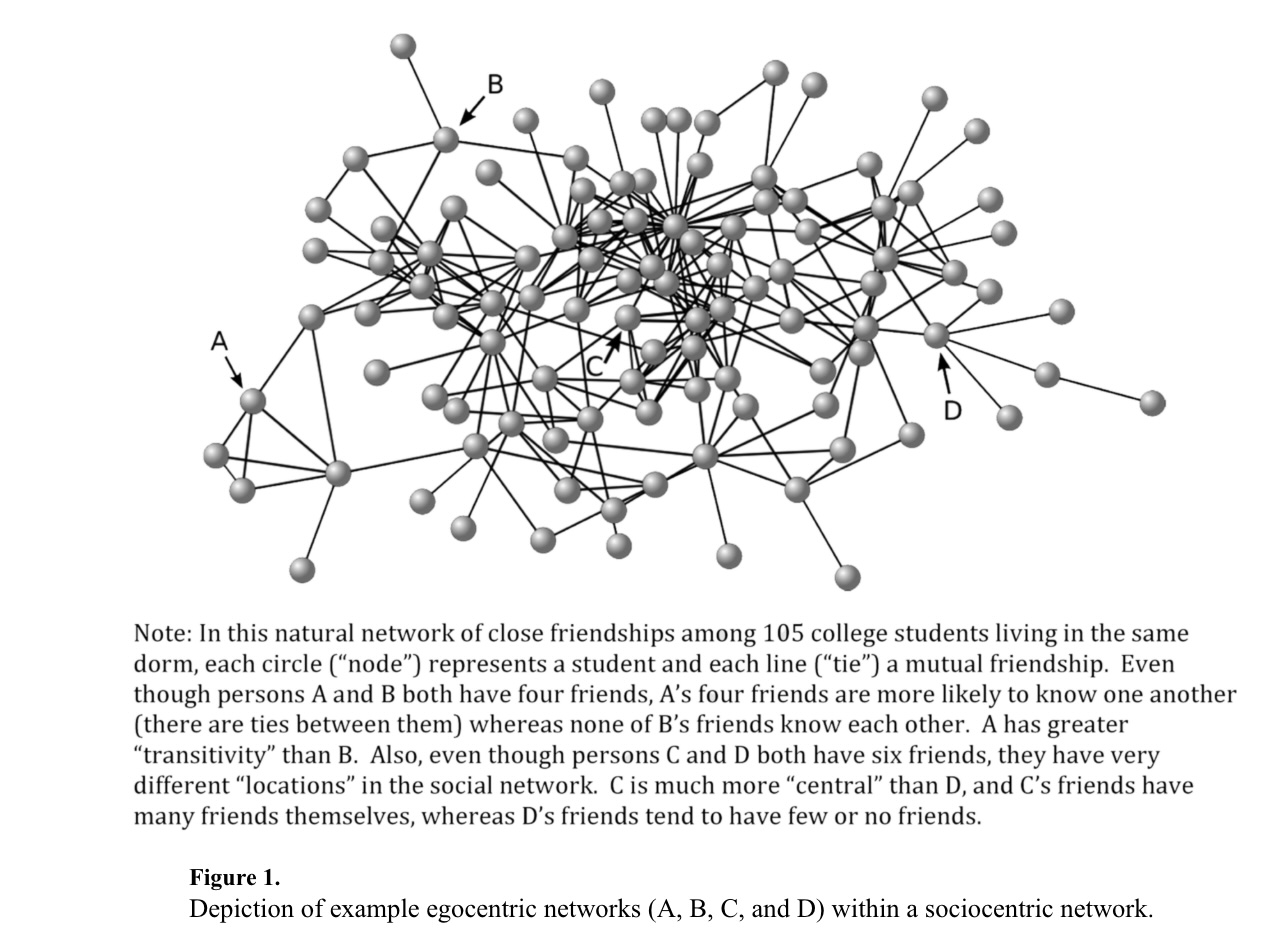
Social networks and health: a systematic review of sociocentric network studies in low- and middle-income countries
Abstract
In low- and middle-income countries (LMICs), naturally occurring social networks may be particularly vital to health outcomes as extended webs of social ties often are the principal source of various resources. Understanding how social network structure, and influential individuals within the network, may amplify the effects of interventions in LMICs, by creating, for example, cascade effects to non-targeted participants, presents an opportunity to improve the efficiency and effectiveness of public health interventions in such settings. We conducted a systematic review of PubMed, Econlit, Sociological Abstracts, and PsycINFO to identify a sample of 17 sociocentric network papers (arising from 10 studies) that specifically examined health issues in LMICs. We also separately selected to review 19 sociocentric network papers (arising from 10 other studies) on development topics related to wellbeing in LMICs. First, to provide a methodological resource, we discuss the sociocentric network study designs employed in the selected papers, and then provide a catalog of 105 name generator questions used to measure social ties across all the LMIC network papers (including both ego- and sociocentric network papers) cited in this review. Second, we show that network composition, individual network centrality, and network structure are associated with important health behaviors and health and development outcomes in different contexts across multiple levels of analysis and across distinct network types. Lastly, we highlight the opportunities for health researchers and practitioners in LMICs to 1) design effective studies and interventions in LMICs that account for the sociocentric network positions of certain individuals and overall network structure, 2) measure the spread of outcomes or intervention externalities, and 3) enhance the effectiveness and efficiency of aid based on knowledge of social structure. In summary, human health and wellbeing are connected through complex webs of dynamic social relationships. Harnessing such information may be especially important in contexts where resources are limited and people depend on their direct and indirect connections for support.
Citation:
Perkins JM, Subramanian SV, Christakis NA. Social networks and health: a systematic review of sociocentric network studies in low- and middle-income countries. Soc Sci Med. 2015 Jan;125:60-78. doi: 10.1016/j.socscimed.2014.08.019. Epub 2014 Aug 19. PMID: 25442969; PMCID: PMC5690563.